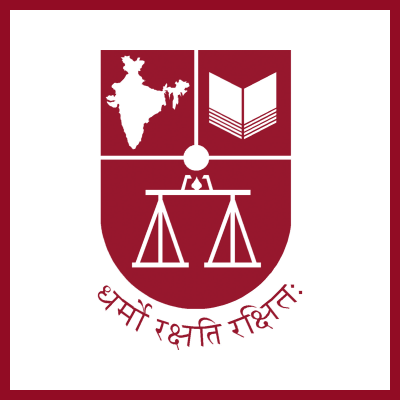FAQs – Master of Business Law
Is the Program recognized by the Bar Council of India?
Legal Education is regulated by the Bar Council of India. All the courses offered by the university are recognized by the Bar Council of India. All the courses of the university including those offered through ODL and Online mode are recognized by the Bar Council of India.
Can the MBL programme be considered equivalent to an LL.B.?
An LL.B. degree is an undergraduate degree whereas, the MBL is a Masters degree focused on Business Laws. Though there might be some content overlap with the LL.B., the MBL programme material is much more comprehensive and allows the students to develop an expertise in areas of Business Law.
What is the course structure of the programme?
Please visit the MBL programme page for course structure.
Can the MBL programme be considered equivalent to an LL.M.?
While the MBL and LL.M. are both master’s degrees. The two programs are not equivalent. The MBL enables the students to cultivate a postgraduate level of understanding of all the Business-related laws.
What are the work prospects after completing an MBL degree from NLSIU?
The knowledge gained during the MBL programme is greatly valued by the industry. An MBL graduate specializes in as many as ten areas which are very pertinent to the business community. Many of our graduates work as Law Officers, Legal Assistants, Legal researchers and Legal Advisors in the industry.
What is the duration for completing the programme?
It will take students at least two academic years to complete the MBL programme. Students of the MBL programme can complete their programme in up to eight years from the year of their enrolment.
Students are required to pay the prescribed fee at the time of admission. If a student has to continue the programme beyond the second academic year because of non-fulfilment of the prescribed requirements for the award of the degree, they will be permitted to continue for the subsequent three academic years or until the time when all programme requirements are completed whichever is earlier by paying a continuation fee as prescribed for each year.
After five years, if the student is still not able to clear the programme they may be given an extension of another 3 years by paying Rs. 6,000 per year for the subsequent three years as extension fee, provided they have cleared at least a total of five courses out of
ten in the MBL programme. At the end of the eighth academic year, if the student is unable fulfil all the requirements for the award of the degree, the admission stands automatically cancelled.
Is it possible for a student to take courses prescribed for MBL - first year and second year together?
Students admitted to MBL – first year programme are eligible for promotion to the second year even if they are unable to pass all the courses required in the first year. However, at the end of the first academic year, a student has to remit the second year to continue in the second year. At the end of second year, the student can take exams for courses offered in the first and second year of the MBL programme.
What is the scheme of Assessment?
Every course shall have a combination of formative and summative assessments. This will aid in regular learning and understanding concepts better. Please note the following details regarding the upcoming assessments: Assessment Details:
| Sl. No | Assessment Type | Assessment Pattern | Marks Allotment | Mode |
| 1. | Formative I | MCQs | 20 Marks | Online |
| 2. | Formative II | MCQs | 30 Marks | Online |
| 3. | Summative | Subjective | 50 Marks | In-person (center-based) |
What is Grading Mechanism?
To successfully complete a programme, a student must take all three assessments (Formative I + Formative II + Summative) and obtain a cumulative grade point average (CGPA) of three and above out of seven. An aggregate of your performance will count towards the final grade in each course.
| Grade | Grade Description | Grade Point | Percentage of Marks |
| O | Meets the highest standards for the assignment or course | 7 | 70% and above |
| A+ | Meets very high standards for the assignment or course | 6 | 65% to 69.99% |
| A | Meets high standards for the assignment or course | 5 | 60% to 64.99% |
| B+ | Meets most of standards for the assignment or course | 4 | 55% to 59.99% |
| B | Meets basic standards for the assignment or course | 3 | 50% to 54.99% |
| C+ | While acceptable, falls short of meeting basic standards in several ways | 2 | 45% to 49.99% |
| C | Lowest passing grade | 1 | 40% to 44.99% |
| F | Failing, very poor performance | 0 | Below 40% |
